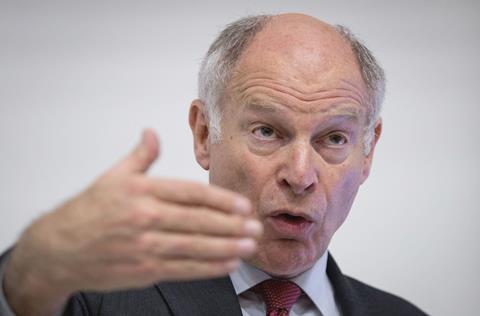Businesses have been urged to take a more conciliatory approach to legal disputes in the wake of Covid-19, or risk overwhelming the court system with a ‘deluge’ of litigation.
In a new set of guidelines, the British Institute of International and Comparative Law encourages parties to ‘avoid and/or minimise protracted legal disputes’ and to embrace the ‘efficient resolution of disputes, in a manner likely also to benefit the wider public interest’.
Earlier research by the institute suggested that Covid-19 could result in a ‘deluge of litigation and arbitration placing a strain on the system of international dispute resolution’.
In the guidance, businesses are advised to consider alternative dispute resolution measures such as mediation; to adopt a ‘cards on the table approach’; and to avoid tactical practices intended to place other parties under unreasonable financial or time pressure.
Former Supreme Court president Lord Neuberger endorsed the guidelines, saying companies should consider their handling of disputes ‘a key part of their environmental, social, and governance responsibilities’.

‘For many months now, the Covid-19 pandemic emergency has meant that people, companies and institutions are going through very challenging times, both socially and economically. And this has inevitably led to many legal disputes. If we are to maintain respect for the rule of law, new approaches may be needed to resolve many of those disputes fairly,’ he said.
‘Commercial entities should consider their conduct around those disputes a key part of their environmental, social, and governance responsibilities. I therefore welcome and endorse the guidelines as a timely and much needed initiative.'
Co-author of the guidelines Helen Dodds, former global head of dispute resolution at Standard Chartered Bank, told the Gazette that Covid-19 ‘will almost certainly lead to an increase in legal disputes. How parties deal with those – aggressively or otherwise – is less certain.’
‘The purpose of the guidelines is to assist parties in their thought processes around how to resolve those disputes and encourage them to resolve them in the least damaging way. It could go either way, which is why we hope the guidelines will help people in deciding their course of action.’
Fellow co-author Guy Pendell, a commercial disputes partner at CMS, added: ‘There is already a lot of mediation and I think more and more corporates are using it at an early stage. I certainly see a case that there might be more early mediation if people embrace the idea to work through the problems.
‘If we can give the courts and tribunals more breathing space then actually that helps the effective administration of justice because the resources can be diverted and spent in the areas that really matter.’



























5 Readers' comments